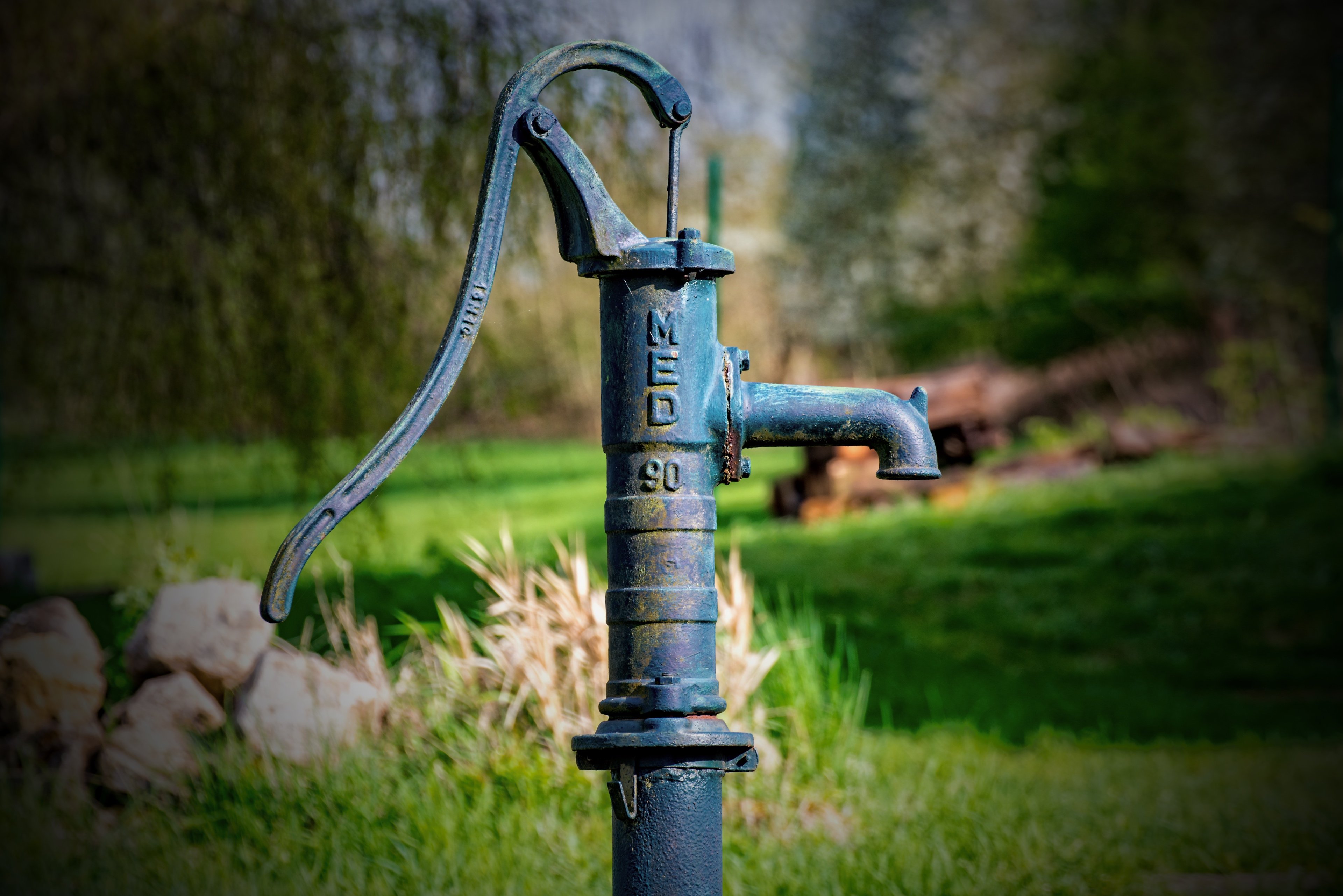If you’re selling a home or land in Santa Cruz County with a private well or Individual Water System (IWS), you must comply with a set of local regulations designed to protect public health and ensure safe drinking water. Under Santa Cruz County Code Chapter 7.73.075, sellers are required to perform both water quality and well yield testing before transferring ownership of the property. This is a point of sale requirement in Santa Cruz County, effective September 1, 2025.
This article explains everything you need to know about these requirements—what’s tested, who performs the testing, how buyers should interpret results, and why understanding these rules is essential for a smooth real estate transaction.
Download the Disclosure Form
Well water testing is now a resale requirement for any home on a private well or springbox. The form can be downloaded here; it must be emailed to Santa Cruz County prior to close of escrow for review by the County Health Officer. The form and the test results must be sent in via email to [email protected].
Why Well Water Testing Matters in Santa Cruz County
Private wells are common in rural and semi-rural areas of Santa Cruz County, where municipal water service may not be available. While well water can be a reliable and cost-effective water source, it is not automatically tested or regulated like city water. This means the responsibility for ensuring water safety falls on the property owner.
Contaminants like arsenic, nitrates, lead, and bacteria can naturally occur or seep into groundwater from nearby agricultural, industrial, or septic systems. Over time, water quality can change, and without regular testing, issues may go unnoticed until they affect a household’s health or cause problems in a real estate transaction.
Consequently, Santa Cruz County has adopted Chapter 7.73.075 in February 2025 to make sure that both sellers and buyers are informed about the condition of any private water supply at the time of sale. The California Coastal Commission approved this ordinance in July 2025 so this ordinance is now the law of the land.
Who Needs to Comply with Chapter 7.73.075?
The rule applies to all sellers of real property in Santa Cruz County served by an Individual Water System. This includes:
- Properties with private domestic wells.
- Homes on shared wells or small private water systems.
- Rural properties without municipal water connections.
Whether your property is located in an incorporated city (like Capitola or Scotts Valley) or an unincorporated area (like Bonny Doon, Corralitos, or Aptos Hills), the same testing rules apply.
What Tests Are Required?
1. Water Quality Testing
The water quality test is a comprehensive analysis of your well’s water. It includes:
- Bacteriological analysis for total coliform organisms (an indicator of bacterial contamination).
- Chemical analysis for key contaminants, including:
- Aluminum
- Antimony
- Arsenic
- Barium
- Beryllium
- Cadmium
- Chloride**
- Total Chromium
- Hexavalent Chromium*
- Conductivity**
- Fluoride
- Iron
- Manganese
- Mercury
- Nickel
- Nitrate
- Nitrite
- Selenium
- Total Dissolved Solids (TDS)**
- Thallium
- Other inorganics as specified by the county.
- Chromium VI testing – required if your well is located south of Valencia Creek. Chromium VI (hexavalent chromium) is a known carcinogen and must be tested due to regional groundwater risks.
*Hexavalent Chromium testing is required if well is located South of Valencia Creek
** Chloride, Conductivity, and TDS are required for wells in the Coastal Zone and when requested by the County due to known water quality risks.
More extensive analysis may be required on a case-by-case basis if the Health Officer determines that the quality of the water may not be safe for domestic use because of evidence of contamination of groundwater in the area or because of past or present land use related or potentially related to the use or disposal of hazardous materials.
2. Well Yield Testing
A well yield test ensures the water system can produce an adequate flow of water for typical household use.
- From November through July, the well must demonstrate at least 3 gallons per minute (GPM).
- From August through October, due to seasonal groundwater depletion, the minimum yield requirement is 2 GPM.
- The test involves a continuous 4-hour pump test to measure performance.
When Must Testing Be Performed?
All required testing must be completed within three years of the property’s sale date. If you’ve had the tests done recently (and the reports are still valid), you can use those results. However, most sellers choose to test during the listing period to provide fresh, up-to-date results for buyers. A well inspection report will often provide more than just information on the water quality and yield, providing details about the condition of the well pump, storage tanks, booster tank, and other water system hardware.
Who Can Perform the Testing?
Testing must be completed by qualified, licensed professionals. This typically means:
- A state-certified water testing laboratory for water quality tests.
- A licensed well contractor or pump tester for yield testing.
Real estate agents and unqualified third parties cannot conduct or interpret these tests. It’s best to hire professionals familiar with Santa Cruz County’s standards to ensure all requirements are met.
Seller Disclosure Requirements
Even though treatment or system upgrades are not mandated based on the results, sellers are obligated to disclose the following information:
- If the property has a water treatment system (e.g., reverse osmosis, softeners, UV disinfection).
- Whether a notice of nonstandard water quality has been recorded.
- Any known well agreements or information about the water service provider.
Being transparent about your well’s condition helps avoid disputes and builds trust with potential buyers.
What Buyers Should Know
For buyers, understanding the condition of a property’s water system is crucial. While the seller must provide test results, real estate agents are not qualified to interpret these results. Buyers are strongly encouraged to:
- Review test reports with a licensed water professional or environmental health expert.
- Understand the potential costs of water treatment systems if the water does not meet current health standards.
- Consider the long-term reliability of the well, especially in drought-prone seasons.
If you’re purchasing a rural property, investing in a professional well inspection (similar to a home inspection) can give you peace of mind.
What Happens if the Water Fails the Test?
The county’s regulation is designed for disclosure, not enforcement. This means:
- There is no requirement for the seller to improve or treat the water.
- Buyers will simply be made aware of the test results, which allows them to make informed decisions.
However, problematic test results—such as the presence of bacteria or toxic metals—may influence negotiations. Buyers might request a price adjustment or ask the seller to install a treatment system before closing.
The Role of Real Estate Agents
While real estate agents are skilled in marketing and negotiating property sales, they are not trained or certified to interpret water test results. An agent’s role is to:
- Ensure the seller understands the requirement to conduct testing.
- Help coordinate testing services, if needed.
- Provide test results to prospective buyers as part of the property disclosure package.
For technical questions, agents will refer clients to qualified water system experts or the Santa Cruz County Environmental Health Division.
Tips for Sellers: How to Prepare
- Schedule testing early. Water tests can take a few days to a few weeks to process, depending on the lab’s schedule.
- Gather existing records. If you’ve had water tests done in the past three years, locate those documents.
- Check your well agreements. If your well is shared with neighbors, ensure you have a copy of the written agreement.
- Consider optional pre-sale maintenance. While not required, having a well contractor inspect and service your pump or pressure tank can avoid surprises during escrow.
- Consult with your real estate agent. They can help coordinate testing and explain how best to present results to buyers.
Tips for Buyers: Protecting Your Investment
- Request all water test reports during the due diligence period.
- Hire your own professional to review or retest if there are concerns.
- Budget for treatment systems, if needed, especially for contaminants like arsenic or nitrates.
- Check seasonal water availability. If you’re buying during a wet season, confirm the well performs adequately in late summer or early fall.
- Ask about water rights and well-sharing agreements—critical details for rural properties.
Frequently Asked Questions (FAQs)
1. What is considered an Individual Water System (IWS)?
An IWS typically means any private water source not connected to a municipal utility. This includes single-property wells, shared wells, or small private water systems.
2. How often should well water be tested?
Even outside of a property sale, the EPA recommends annual water testing for basic contaminants like bacteria and nitrates.
3. Is reverse osmosis or UV treatment required if contamination is found?
No, but it’s often recommended to ensure safe drinking water. The decision is up to the property owner or buyer.
4. How much does water testing cost?
Comprehensive water quality testing can range from $150 to $300, while well yield testing may cost $300 to $600, depending on the contractor.
5. Where can I get more information?
Contact the Santa Cruz County Environmental Health Division or visit their website for guidelines, lists of certified labs, and forms.
Why Compliance Benefits Both Sellers and Buyers
While the testing requirement may seem like another hoop to jump through, it ultimately protects both parties in a real estate transaction. Sellers can demonstrate transparency, while buyers gain peace of mind knowing their water is safe and sufficient.
From a real estate perspective, having clear, recent test results can actually speed up the escrow process and reduce the risk of disputes. It’s a small investment that can make a big difference.
Final Thoughts
If you’re preparing to sell a property in Santa Cruz County that relies on an Individual Water System, understanding and complying with Chapter 7.73.075 is non-negotiable. By testing your water quality and well yield ahead of time, you’ll avoid delays, reassure buyers, and ensure a smooth closing.
As a local real estate professional, I always encourage sellers and buyers to work with trusted experts—from certified labs to licensed well contractors—when dealing with private water systems. The quality and reliability of your water supply aren’t just regulatory issues; they’re essential for your health, safety, and property value.
Need expert advice on selling your home with a private well in Santa Cruz County?
Contact me today. I can connect you with the right water testing professionals and guide you through every step of the disclosure process.
Santa Cruz County Luxury Homes For Sale
2
3
4
5
6
7
8
9
10
11
12
13
14
15
16
17
18
19
20
21
22
23
24
25





